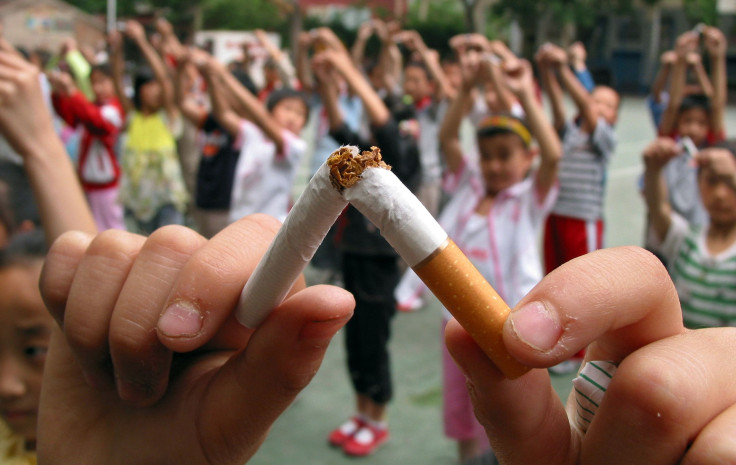Eating High Glycemic Index Carbs May Increase Lung Cancer Risk, Especially In Non-Smokers

When Dana Reeve, wife of actor Christopher Reeve, announced she had lung cancer, she made sure to mention that she had never smoked cigarettes. Highly aware of how her celebrity might assist a worthy cause, she understood that lung cancer needed to be disassociated from cigarette smoking to better engage public concerns and raise critical funds for research. Now a study from MD Anderson Cancer Center uncovers a previously unknown risk factor for lung cancer in those who, like Reeve, have never smoked.
Eating foods with a high glycemic index, including carbs such as white bread, baked potatoes, and white rice, was associated with an increased risk of lung cancer, say the researchers who set out to explain the lung cancer cases where smoking was not the cause. Including both smoking and non-smoking white participants, the study found the relationship between a high glycemic index diet and cancer to be particularly true for the non-smokers.
While the relationship between diet and different types of cancer may be difficult to measure, according to Cancer Research UK, scientists generally believe, based on past research, that less healthy diets — those that lack enough fruits, vegetables, and fiber — contribute to cancer risk in general.
Meanwhile, more than 158,000 deaths from lung cancer are expected in the United States this year, according to the American Cancer Society. About 14 percent of all new cancers are lung cancers. Ranked as the second most common cancer in men and women, lung cancer outranks all others as the leading cause of cancer mortality. Undoubtedly, tobacco, particularly smoking cigarettes, is the underlying cause of most instances of this disease, but it doesn’t account for all. A team of scientists led by Dr. Xifeng Wu, a professor of epidemiology, had an inkling from the start that the answer to what is causing the rest might be found in diet.
Glycemic Index
Past studies, the researcher explain, indicate diets high in fruits and vegetables may decrease risk of lung cancer, while eating lots of red meat, saturated fats, and dairy products may increase the risk. Glycemic index (GI) is a measure that indicates how quickly your blood sugar levels rise following a meal and researchers have focused on this as well as a related measure known as glycemic load in examining cancer risk.
The MD Anderson team surveyed the dietary habits and health histories of 1,905 patients newly diagnosed with lung cancer and 2,413 healthy people. In particular, the team looked at glycemic values and based on this information, divided the participants into five equal groups.
They discovered a 49 percent increased risk of lung cancer among people with the highest daily glycemic index compared to those with the lowest. This finding was more pronounced among people who had never smoked cigarettes, those diagnosed with squamous cell carcinoma (one type of lung cancer), and those with less than 12 years of education. Because glycemic load, a measurement calculating overall GI intake based on the quantity of food consumed, had no significant relationship with lung cancer risk, the researchers suggest the average carbohydrate quality, not quantity, may modulate lung cancer risk.
Among those with 12 years or less schooling, people in the highest GI group were 77 percent more likely to develop lung cancer than those in the lowest GI group. By contrast, people with more than 12 years of education had an elevated risk of only 33 percent.
Educational level is a proxy for socioeconomic status, say the authors, who add diet quality and smoking behaviors have been shown to be related, so any link between GI and education may reflect the joint impact of poor diet and smoking on lung cancer risk.
However, the study was limited to non-Hispanic whites and, more importantly, did not account for diabetes, hypertension, or heart disease. For these reasons, the researchers say their findings cannot be considered conclusive and that more study is needed.
Source: Melkonian SC, Daniel CR, Ye Y, Pierzynski JA, Roth JA, Wu X. Glycemic Index, Glycemic Load, and Lung Cancer Risk in Non-Hispanic Whites. Cancer Epidemiology, Biomarkers & Prevention. 2016.



























